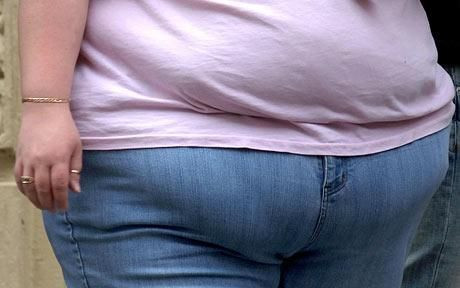Fat Shaming Doesn't Work: Weight Discrimination Makes The Overweight More Obese

Getting and maintaining the elusive "perfect body type" is a concern for many, reinforced by the images of lean and sculpted celebrities in the media. While these images may serve for some as motivation, shame does not. In fact, telling someone that they could stand to lose a few pounds might be counterproductive. According to a study published in PLOS One, participants who faced fat shaming or weight discrimination, were 2.5 times more likely to become obese.
The study surveyed 6,175 participants with body types varying from normal weight, overweight, and obese. Every two years from 2006 to 2010 the patients were sent psychosocial questionnaires about their experiences with weight discrimination. Researchers found that overweight people who experienced weight discrimination were more likely to become obese by the next time that they were weighed.
The Centers for Disease Control and Prevention (CDC) reports that more than one-third of U.S adults are obese. That ratio could increase due to a mix of poor lifestyle choices and decreased self-esteem resulting from weight discrimination. Because obesity is a major public health crisis — since the condition predisposes people to life-threatening illnesses such as cardiovascular disease, stroke, and type 2 diabetes — health professionals have debated whether "fat-shaming" could be used as motivation to lose weight.
"Rather than motivating individuals to lose weight, weight discrimination increases risk for obesity," said the study author, Angelina R. Sutin. Many people believe that by fat shaming or trying to force someone they know to lose weight that it will somehow motivate them. By doing this the person actually has poorer mental health outcomes which increases their chances for obesity.
"Stigma and discrimination are really stressors, and, unfortunately, for many people, they're chronic stressors," Rebecca Puhl, deputy director of the Rudd Center for Food Policy and Obesity at Yale University, tells Today. "And we know that eating is a common reaction to stress and anxiety — that people often engage in more food consumption or more binge eating in response to stressors."
One of the most public and recent cases of weight discrimination was by the Boy Scouts of America. Last June, the organization announced that they would not allow obese scouts to participate in the summer program, barring boys with a body mass index (BMI) of 40 or more. A persons BMI is is a number calculated from a person's weight and height.
A spokesman for BSA said that the main reason for implanting this ban was for health concerns, stating that, "many of the Jamboree's activities are strenuous."
"Weight discrimination, which is often justified because it is thought to help encourage obese individuals to lose weight can actually have the opposite effect: it is associated with the development and maintenance of obesity," said Sutin.
Going forward, combating obesity in the U.S. has no easy fix -- no magic pills, no magic words to say to a person to get them to lose weight. Obesity can be tackled only by doing the difficult work: encouraging people to engage in physical activity, make better food choices, and to be proactive in their lifestyle choices.
Source: Sutin, Angelina R. "Perceived Weight Discrimination and Obesity." PLOS One. 2013.
Published by Medicaldaily.com



























